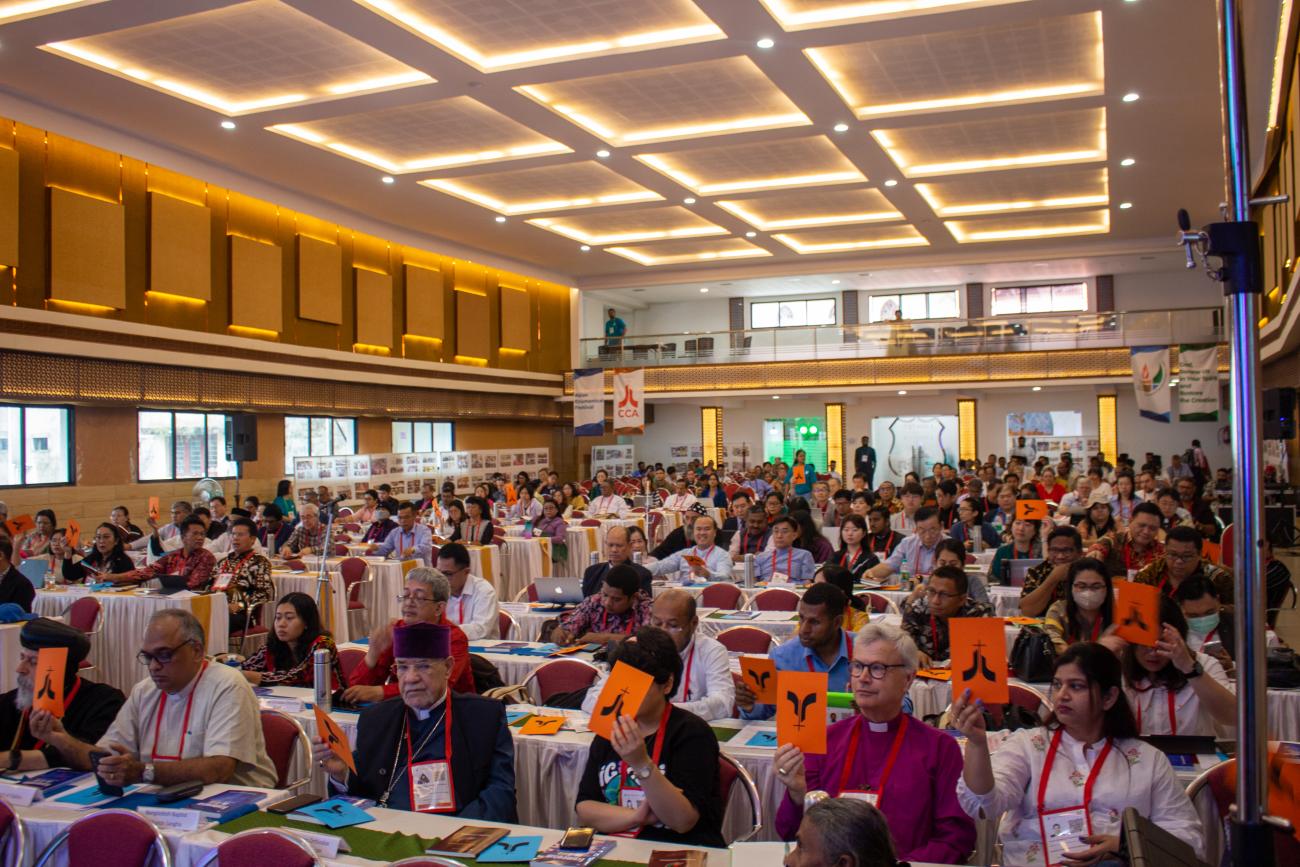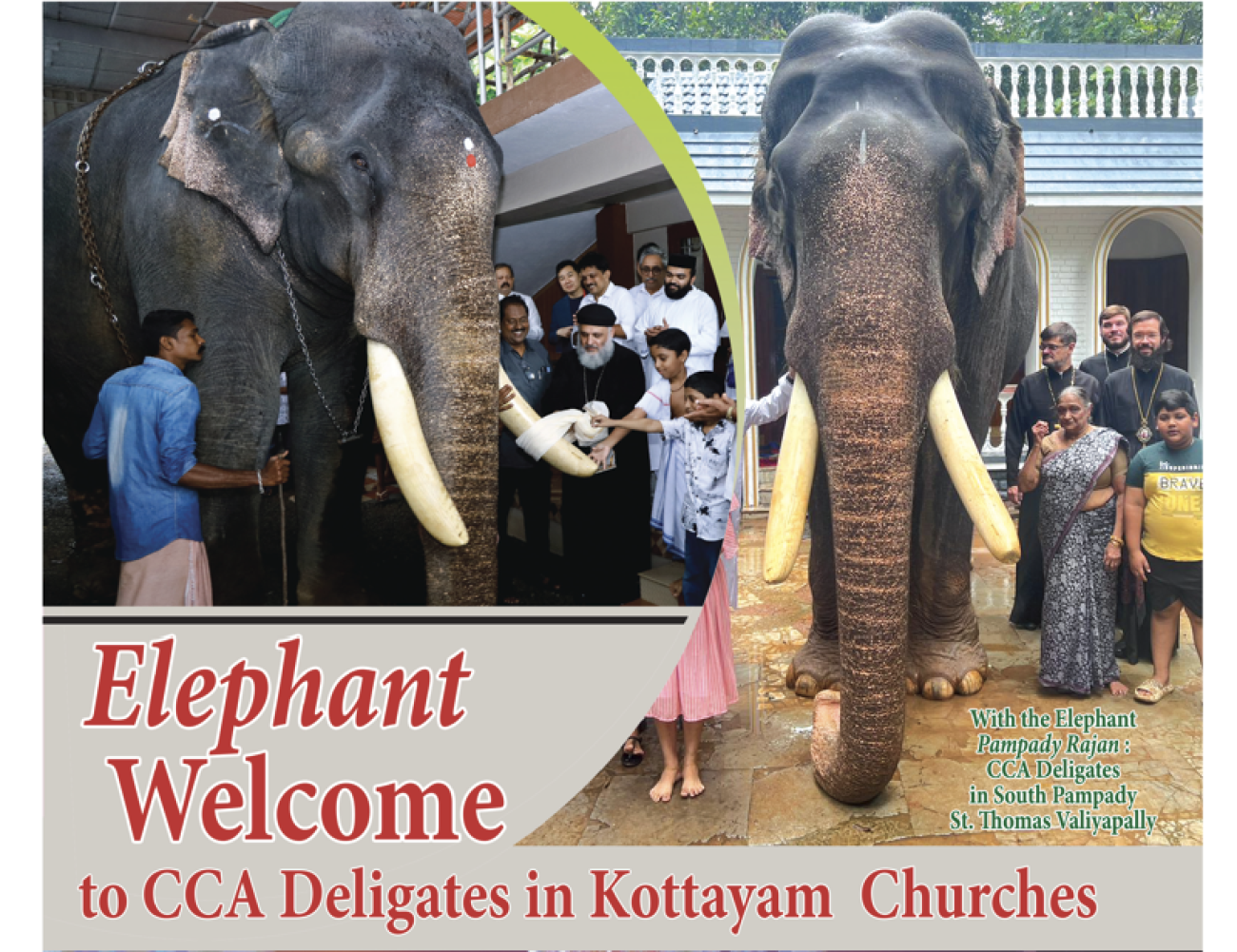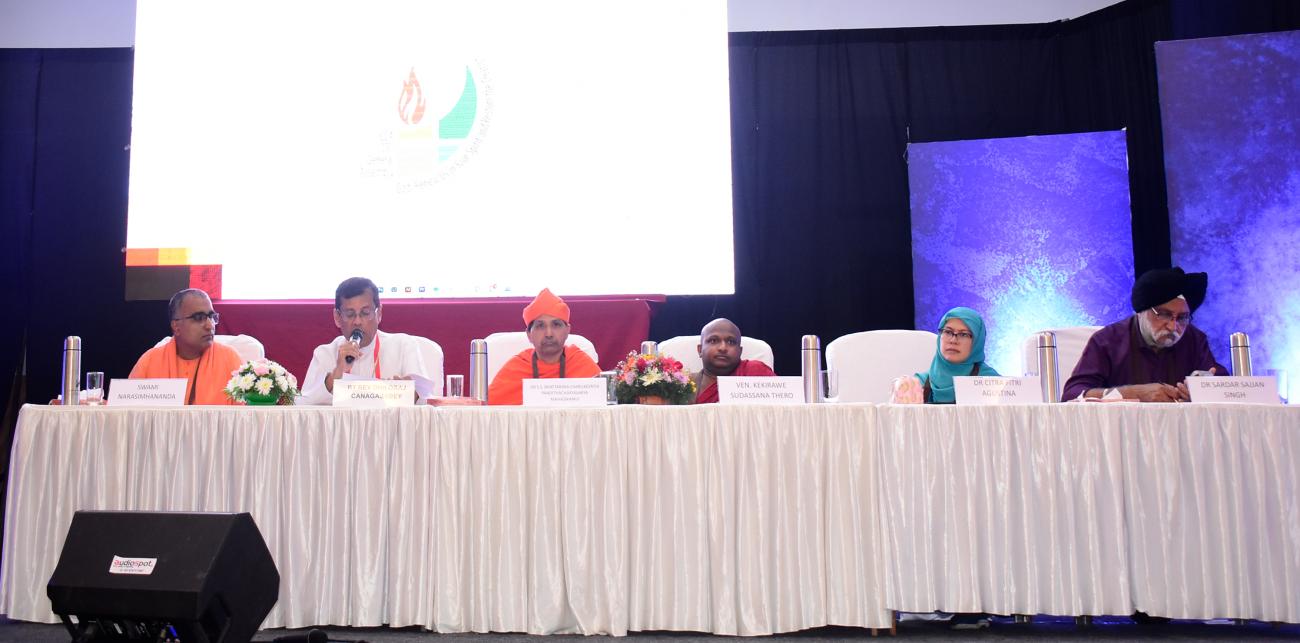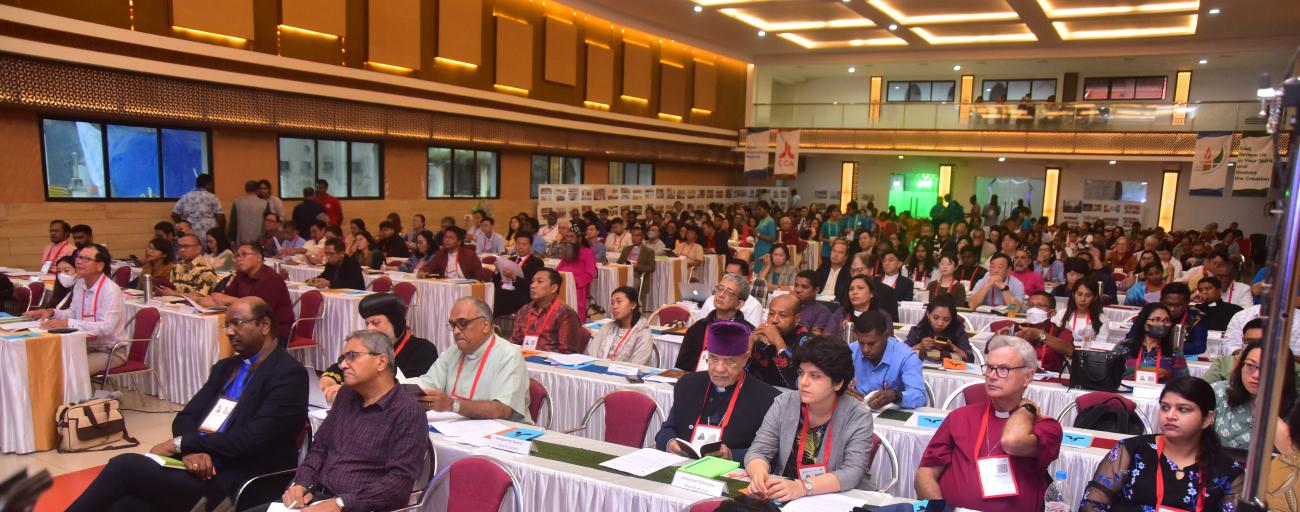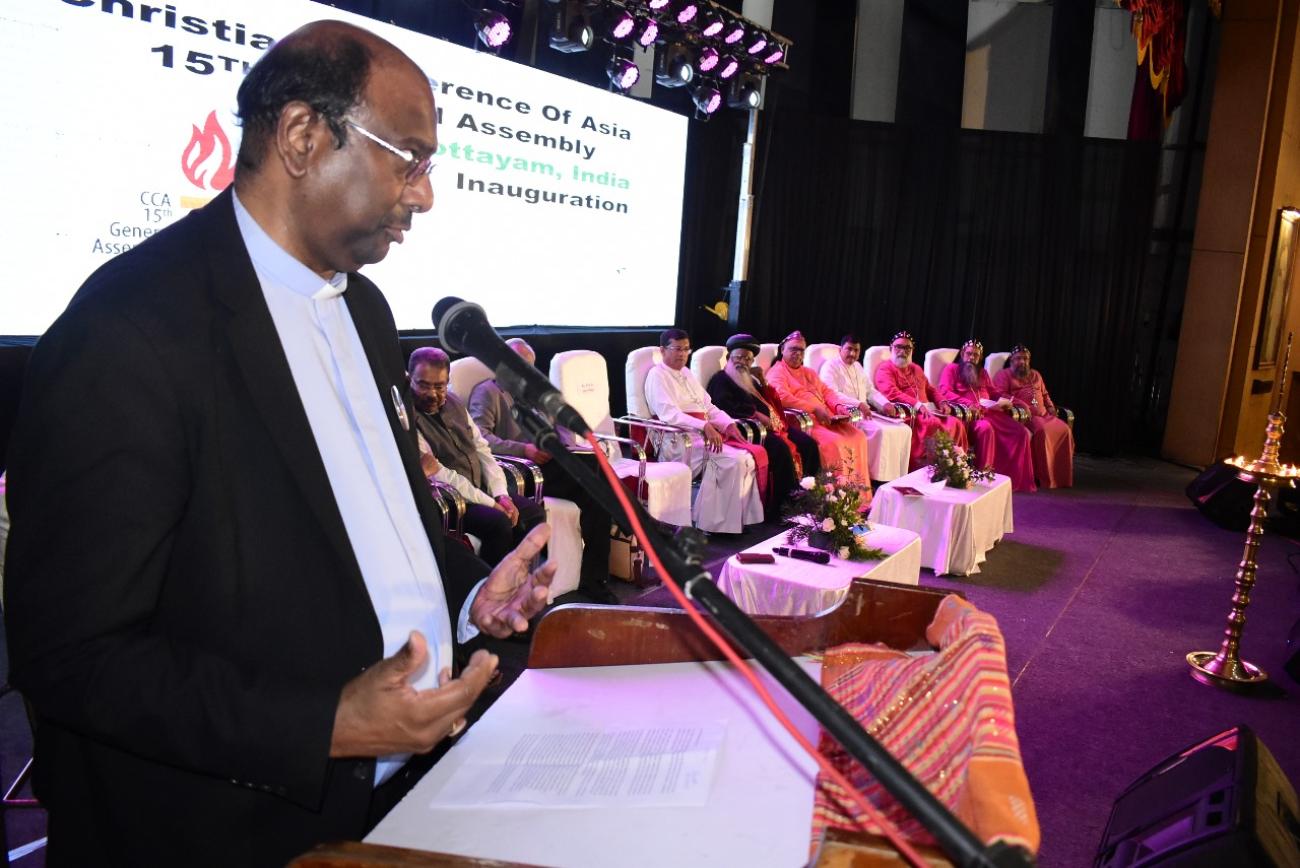TSUEN WAN COMMUNIQUE

International Consultation on
Peace, Reconciliation and Reunification of the Korean Peninsula:
Towards an Ecumenical Vision beyond the Tozanso Process
TSUEN WAN COMMUNIQUE
1. One hundred and thirty-seven church leaders from across the world have today recommitted the ecumenical community to the goal of Peace, Reconciliation and Reunification of the Korean Peninsula.
2. Marking the 25th anniversary of the Consultation convened by the Commission of the Churches on International Affairs of the World Council of Churches and by the Christian Conference of Asia held in Tozanso, Japan in 1984 - the first ecumenical gathering to take steps towards the peaceful reunification of the divided Korean peninsula - the World Council of Churches and the Christian Conference of Asia brought together church leaders and participants from the two Koreas and from across the world in Tsuen Wan, Hong Kong, 21-23 October 2009. The Tsuen Wan Consultation included presentations from the churches of North and South Korea, a keynote address from WCC general secretary Rev Dr Sam Kobia, an overview of developments over the past 25 years, input from political analysts, a joint celebration of the Eucharist led by North and South Korean church leaders, and engaged in worship, Bible study and prayers for God's guidance and inspiration towards the goal of peaceful reunification.
3. The healing and reconciling spirit of the Tozanso process was affirmed by participants throughout the Tsuen Wan Consultation. They recalled the 1989 WCC policy statement on "Peace and the Reunification of Korea". This statement commenced by referring to the WCC 1983 "Statement on Peace and Justice" and then went on:
"The yearning for peace, justice and unity converges most poignantly and in a unique manner in the case of Korea. The Korean people have been divided by foreign forces, and remain divided by force and have been submitted to coercive systems of control which perpetuate this division and are justified by it. Opposing conceptions of justice have been created and systematized in Korea, where "security" imposes a continual state of confrontation. A so-called "peace" is maintained at the cost of the largest concentration of military force in the world." (1989 WCC Statement)
4. The Consultation recognised the many positive developments since Tozanso, including:
- opportunities for visits by Christian leaders to North Korea and for North Korean Christian leaders to visit other countries, especially the opportunity for North and South Korean church leaders to meet and to gain in understanding and trusting each other;
- the governments of North and South Korea committing to a process towards reunification in the June 15 North-South Joint Declaration (2000), and in the October 4 Declaration (2007) which further spelt out the steps towards reunification;
- increasing contact between the people and the governments of North and South Korea through people to people exchanges, family reunions, tourist visits, the sharing of resources and economic cooperation;
- growing understanding and trust between North and South Korea.
5. However, in recent years difficulties have emerged which have challenged the process towards reunification. These difficulties include:
- hostility towards the Democratic People's Republic of Korea on the part of other countries, especially from the USA and also from Japan, leading to even greater reliance on military power and military threats;
- the change of government in South Korea in February 2008 which brought a sharp change in outlook and policies towards North Korea;
- the cessation of tourism into the North and the downturn in economic co-operation.
6. Participants in the Tsuen Wan Consultation strongly affirmed that the gospel of Jesus Christ commits Christians to work against evil, injustice and suffering in all its forms, and to pray and work for God's justice, peace and unity in the world. The Korean people have suffered for too long from their forced division. They are one people, one culture, one nation, yet they remain divided. Justice demands that they be reunited in peace and in common commitment to one another. The rest of the world needs to step back from policies, prejudices and pressures which hinder the Korean people from moving forward in the process that will lead to their peaceful reunification and from shaping their future together.
7. In the spirit of the Tozanso Conference, and seeking to advance the principles and tasks declared at Tozanso, the Tsuen Wan Consultation offers the support of the ecumenical community for new steps towards reunification by:
- North and South Korea fully implementing the June 15 North-South Joint Declaration and the October 4 Declaration;
- calling for the lifting of all sanctions against the DPRK under United Nations Security Council Resolution 1874, while also noting that Resolution 1874 allows for assistance for humanitarian aid and for sustainable development;
- promoting the concept of "reunification as a process" which could involve progressive steps for peaceful co-existence, further economic co-operation, and inter-Korean confederation, leading to complete reunification;
- establishing immediate bilateral negotiations between the DPRK and the USA in order to reduce current tensions;
- calling for the normalizing of relations between the DPRK and Japan;
- urging the USA to withdraw its hostile policies towards the DPRK, and advocating for the cessation of all multinational military exercises in and around the Korean peninsula;
- encouraging the international community to allow space and time for direct negotiations between North and South Korea towards a lessening of tensions between them and towards peace, reconciliation and reunification;
- supporting the WCC's statements and initiatives towards a world free of all nuclear weapons;
- encouraging the Christians of North and South Korea to celebrate a turning point in their endeavours for peace and reunification at the 10th WCC Assembly in Busan, Korea, in 2013.
8. It is the fervent hope and prayer of all participants at the Tsuen Wan Consultation that the divided people of Korea will be reunited soon. We long for the day when the people of the Korean peninsula, together with the rest of the world, can join together in thanksgiving and joy to celebrate that they are again one people and one nation.
"In the name of Christ Jesus, our peace, in whom we are made one, who has broken down the wall of hostility, creating in himself one new people, reconciling all people to God in one body through the cross, thereby bringing the hostility to an end…" (from Ephesians 2:13-16).
Tsuen Wan, Hong Kong
23 October 2009.


